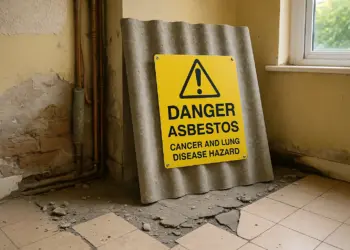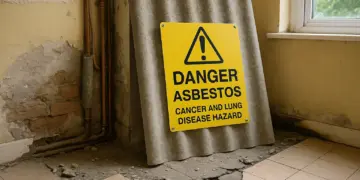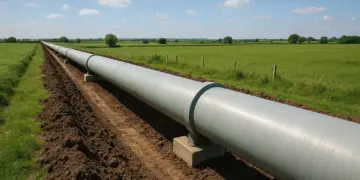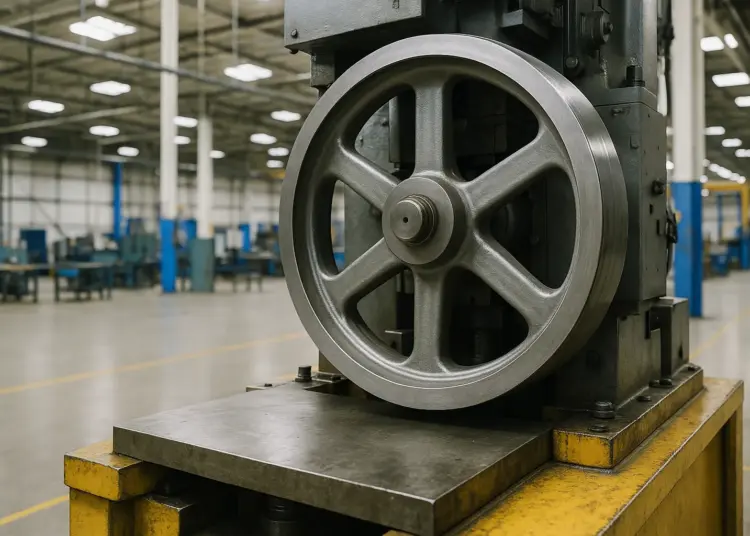Story Highlight
– Employee Steven Westbrook died after machinery accident.
– Company failed to install necessary safety guard.
– Court fined Autostructures UK £1.3 million for breaches.
– Management’s maintenance procedures allegedly broke down.
– Judge emphasized need for better workplace safety measures.
Full Story
A court in Stafford has been informed of the tragic circumstances surrounding the death of a factory worker after he was struck by a piece of machinery at a Telford-based plant. Steven Westbrook, aged 47, sustained critical head injuries on 13 December 2018 due to the absence of a necessary protective guard on a flywheel, which had been removed two years prior despite concerns expressed by employees.
During proceedings at Stafford Crown Court, it was revealed that Autostructures UK, formerly known as GKN Autostructures, failed to meet health and safety regulations that require safeguarding dangerous machinery. Following the incident, which occurred at approximately 22:00 GMT, Mr Westbrook was transported to a hospital in Stoke where he tragically passed away four days later as a result of his injuries, including a fractured skull and shoulder.
Judge Mr Justice Turner KC, who presided over the case, stated that there was “no excuse” for the company’s failure to install the guard, highlighting that the necessary adjustments to enhance safety were both straightforward and inexpensive. Autostructures UK admitted to breaching health and safety laws and faced a hefty fine of £1.3 million, in addition to costs amounting to £16,284. The judge expressed concern regarding the state of health and safety management within the company, stating, “A properly-run company would never have allowed this dangerous state of affairs to arise.”
Evidence presented in court indicated that the maintenance management at the factory had deteriorated, leading to confusion among staff regarding accountability for safety protocols. Lead prosecutor Allan Spencer-Compton KC emphasized that previous complaints regarding the risks associated with the unguarded flywheel were disregarded during health and safety discussions. It was noted that employees described working near the machine as “terrifying,” supporting the notion that the situation was “sadly, an accident waiting to happen.”
In emotional testimony, Mr Westbrook’s wife, Suzanne, referred to him as her “childhood sweetheart” and expressed the profound grief she experienced at witnessing his passing. His mother, Joyce Westbrook, articulated the overwhelming sorrow she felt over her son’s death, deeming it “preventable.”
The trial highlighted that, while safety systems were ostensibly in place, they were not effectively implemented. James Leonard KC, representing Autostructures UK, acknowledged in court that Mr Westbrook’s death “should never have happened” and pointed out the fundamental issue was the replacement of the guard. Nonetheless, he argued that the company had established protocols intended to protect employees, which were not correctly adhered to.
The defence also noted external factors affecting the company’s operations, including a significant cyber-attack on Jaguar Land Rover, a key client of Autostructures UK. This incident had caused considerable financial repercussions, resulting in a notable decline in sales and the redundancy of 19 staff members. In light of these circumstances, Judge Turner decreed a payment structure for the imposed fine over a period of twelve months.
In a separate ruling earlier this year, four individuals faced similar charges tied to Mr Westbrook’s death but were acquitted at Manchester Crown Court. However, the corporation’s admission of guilt at Stafford Crown Court signifies a critical step in accountability for workplace safety.
The case serves as a stark reminder of the paramount importance of enforcing health and safety measures in the workplace, particularly in environments where machinery is in operation. Workplace safety regulations have been established for well over a century, and their effective implementation is crucial to prevent further tragedies. The incident has not only highlighted systemic failings within Autostructures UK but also underscored the need for stricter adherence to safety protocols to protect employees in high-risk occupations.























This tragic case underlines how vital basic safety controls are and how devastating the consequences can be when they are ignored. Unguarded machinery and failures in maintenance and accountability are unacceptable. Employers must identify and manage risks, install and maintain guards and other protective measures, ensure clear responsibilities for safety are assigned, and provide workers with training and a culture where concerns can be raised and acted on. Families should never pay the price for preventable failures.
This tragic case is a stark reminder that basic safety measures must never be treated as optional. Unguarded machinery and poor maintenance management create foreseeable risks that employers are legally and morally obliged to control. Accountability needs to be clear and effective so that routine inspections, local risk assessments and prompt repairs actually happen. Employers must ensure guards are fitted and maintained, staff are trained to recognise hazards, and near misses are reported and acted on without delay. No one should go to work expecting to face preventable life threatening danger.
This tragic case underlines the absolute necessity of proper machine guarding and clear maintenance accountability. Employers must ensure risk assessments are followed through with effective physical controls and regular inspections. Competent supervision and a visible safety culture are essential to prevent avoidable deaths, and families deserve assurance that lessons have been learned and changes implemented.
This tragic case is a stark reminder that basic safety measures cannot be treated as optional. Unguarded moving parts are a foreseeable hazard and should be eliminated through proper guarding, routine maintenance checks and clear assignment of responsibility for safety. Stronger safety culture, effective supervision and worker involvement in risk assessments would help prevent avoidable deaths like Mr Westbrook’s. The fine and the findings should prompt all operators to review machinery safeguards, training and maintenance systems immediately.